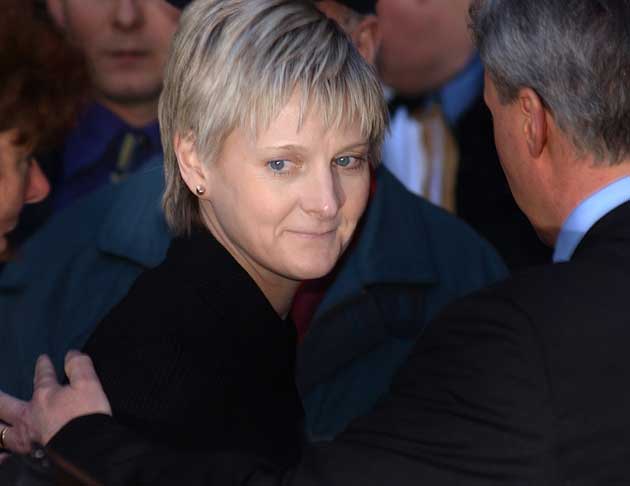Crackdown on expert witnesses
Judges given new power to test credibility of specialists who testify in court cases

Your support helps us to tell the story
From reproductive rights to climate change to Big Tech, The Independent is on the ground when the story is developing. Whether it's investigating the financials of Elon Musk's pro-Trump PAC or producing our latest documentary, 'The A Word', which shines a light on the American women fighting for reproductive rights, we know how important it is to parse out the facts from the messaging.
At such a critical moment in US history, we need reporters on the ground. Your donation allows us to keep sending journalists to speak to both sides of the story.
The Independent is trusted by Americans across the entire political spectrum. And unlike many other quality news outlets, we choose not to lock Americans out of our reporting and analysis with paywalls. We believe quality journalism should be available to everyone, paid for by those who can afford it.
Your support makes all the difference.Scientists, doctors and other experts are to be stopped from giving misleading evidence in court after a series of miscarriages of justice involving unreliable testimony, under proposals published today.
Tough new rules will give judges greater powers to test the credibility of experts and, where necessary, exclude their evidence from juries.
The move follows a number of high-profile cases in which expert evidence has led to the wrongful conviction of innocent people.
Under proposals published by the Government's law advisory body, judges would have a "gate-keeping" role to stop "untrustworthy" evidence being heard in court.
The most troubling case in recent years was that of solicitor Sally Clark who was convicted of murdering her two infant sons after a jury heard that the chances of the babies dying natural deaths was one in 73 million.
That statistic was later shown to have "grossly" misrepresented the chance of two sudden deaths within the same family from unexplained but natural causes. Sally Clark had her convictions quashed by the Court of Appeal in 2003 but never recovered from her ordeal and was found dead at her home in 2007
The Law Commission of England and Wales, which publishes its consultation paper today, sets out a number of preliminary proposals to prevent a repeat of cases like that of Sally Clark.
The commissioners say: "More worrying still, it may be that the examples given represent the tip of a larger iceberg. It has been said that much other forensic scientific evidence relied on in criminal proceedings has not been properly validated, which suggests there is at least a significant risk that some evidence is not sufficiently reliable to be admitted."
They point to "several recent cases" which suggest there is a real, ongoing problem which demands an urgent solution: "It would appear expert evidence is sometimes admitted too readily and that, notwithstanding a number of successful and highly publicised appeals concerning the reliability of expert opinion evidence, there continues to be a pressing danger of wrongful convictions."
Some so-called experts have also turned out to be acting fraudulently.
Notorious examples of fraudulent "expert" witnesses who have been convicted in recent years include Godwin Onubogu (a bogus medical doctor, convicted in 1998), Barian Baluchi (a bogus psychiatrist, convicted in 2005) and Gene Morrison (a bogus psychologist, convicted in 2007).
Professor Jeremy Horder, the commissioner leading the project, said: "The parties in criminal trials are relying increasingly on the evidence of expert witnesses. Expert evidence, particularly scientific evidence, can have a very persuasive effect on juries.
"It is vital that such evidence should be used only if it provides a sound basis for determining a defendant's guilt or innocence.
"There have been miscarriages of justice in recent years where prosecution expert evidence of doubtful reliability has been placed before Crown Court juries.
"There may also have been unwarranted acquittals attributable to such evidence. We want to ensure the criminal courts have the means to authenticate expert evidence and be satisfied the information before them is sound."
One of the Law Commission's suggestions, although not a formal proposal, is for a court-appointed assessor to help the judge establish the reliability of and credibility of the expert testimony.
Another would see the establishment of a regulatory framework for expert witnesses.
Join our commenting forum
Join thought-provoking conversations, follow other Independent readers and see their replies
Comments